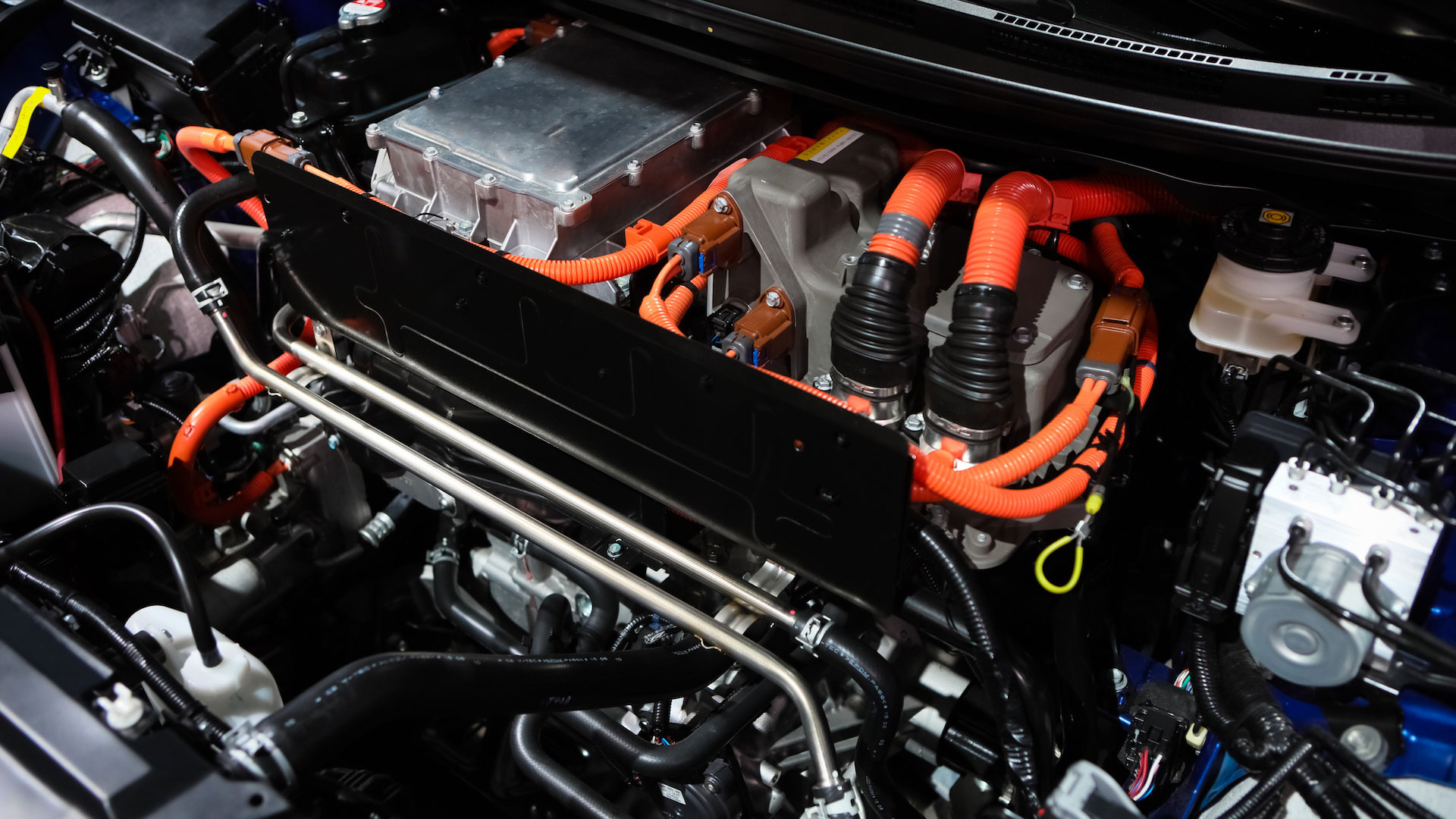Electric Vehicle (EV) Technician Program (T951)

Program Description
Program Overview
The Electric Vehicle (EV) Technician training program addresses a global need for people who are skilled in diagnosing, servicing and repairing high voltage EVs, and commercial charging stations.
You’ll gain a comprehensive understanding of electrical vehicle circuits through a blend of theoretical and hands-on instruction. Our multimedia learning resources and cutting-edge electrical/electronics simulation software (CircuitLogix Pro) enable you to test, validate and understand the complexities of circuits commonly found in EVs.
This program is highly beneficial to Automotive Service Technicians who have a strong background in internal combustion engine (ICE) powered vehicles, but lack the skills in power electronics and data communication systems to safely perform service-related work on EVs and Hybrid Electric Vehicles (HEVs). This program is also relevant to electricians who will be installing, servicing and maintaining residential and commercial EV charging stations.
International Students: This online distance program is only available to study while remaining in your home country and does not qualify for study/work permit eligibility in Canada.
Full Description
The 32-week Electric Vehicle (EV) Technician certificate program is structured into 14 modules, each containing around 10 major topics. Delivered in an asynchronous “on demand” format, this setup allows you to start and finish modules at your own pace.
A key feature of the program is the integration of theory and hands-on learning. Comprising 14 modules, our curriculum includes state-of-the-art simulation software with virtual lab/shop experiments, combined with videos, animations and real-world practical examples to reinforce the fundamental concepts of EV technology. As a student in the program, you’ll receive a licensed copy of CircuitLogix, which incorporates both 2D- and 3D-simulation.
While the typical program duration is around 32 weeks, there are no fixed schedules for completion. This flexibility allows you to progress through the course content at your own pace. Each module concludes with an online final exam.
Program Specific Computer Requirements
Minimum computer requirements
- Intel Pentium-based equivalent Processor
- 2 GB RAM
- 500 MB of available disk space
- Windows 7/ Windows 8/Windows 8.1/Windows 10/Windows 11
- 32 and 64 bit compatible
- Email account
- Internet access
Note: Our program software is strictly made for Windows Operating Systems and will therefore only run on Windows-based computers. It will NOT work on Apple computers running Mac Operating Systems such as Macbook, Chromebook computers running Chrome Operating Systems such as Google Pixelbook or any device running Linux Operating Systems.
Career & Postgraduate Study Opportunities
Courses
Required Courses
| Code | Course Name |
|---|---|
| EVTC 9000 | Introduction to EVs |
| EVTC 9001 | Basic Electricity |
| EVTC 9002 | Direct Current Circuits |
| EVTC 9003 | Alternating Current Circuit |
| EVTC 9004 | Power Electronics |
| EVTC 9005 | Batteries and Fuel Cells |
| EVTC 9006 | Battery Charging Systems |
| EVTC 9007 | DC Motors and Controls |
| EVTC 9008 | AC Motors and Controls |
| EVTC 9009 | Powertrains |
| EVTC 9010 | Sensors and Actuators |
| EVTC 9011 | Communication and Control Systems |
| EVTC 9012 | Safety, Maintenance, and Repairs |
| EVTC 9013 | Autonomous Vehicles |
Tuition & Fees
Domestic Tuition
Additional Costs
There are no additional costs. Students can pay tuition in full or choose the pay-as-you-learn option.
Initial registration is $580 (includes all learning materials, laboratory simulation software, and access to the Module 1 exam) and registration for each of the remaining 13 modules is $90/module. Students may register for one or more modules at any time. International applicants are charged the same fees, but in U.S. dollars (US$580); the posted exchange rate in effect at the time of your registration will be used to determine the final fee in Canadian dollars. There is no refund on learning material.
* Amounts listed are the estimated total of tuition and materials for the programs starting in fall 2024. Fees are subject to change for programs starting in fall 2025 and at later dates.
Financial Assistance
This program is not eligible for OSAP funding.
Each year we award over $2 million dollars in scholarships, awards and bursaries to first-year students. Check out our financial aid web pages for ways to pay for college and the full list of available scholarships, awards and bursaries.
Disclaimer: The information contained in this website is subject to change without notice. It should not be viewed as a representation, offer or warranty. Students are responsible for verifying George Brown College fee requirements.
Admission Requirements
The academic prerequisites for students entering into the Electric Vehicle Technician program is a high school diploma, with credits at or above the general level or equivalent mature student status. A background in electronics, electrical, or internal combustion engine (ICE) powered vehicles is helpful but not necessary.
If you are 19 years or older and do not have a high school diploma, you may enrol as a mature student.
Special Requirements
International Students
This online distance program is only available to study while remaining in your home country and does not qualify for study/work permit eligibility in Canada.
How to Apply
Call 416-415-4726 or see evtechnician.com.
Contact Us
Call us at 416-415-4726, or toll-free 1-888-553-5333.
E-mail info@gbctechtraining.com.
Check out the course details at evtechnician.com.
